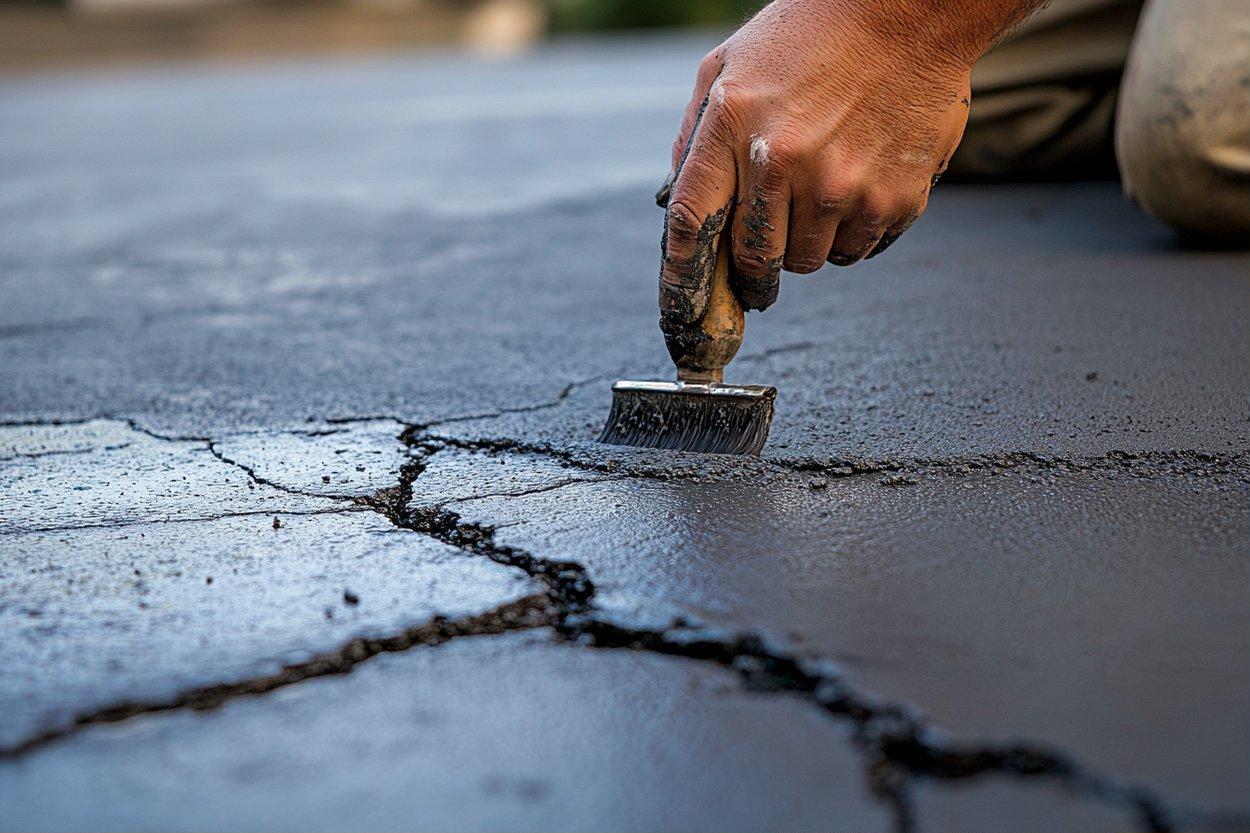Professional Services for Repair and Installation Projects
Professional concrete contractors offer expertise in a variety of projects, from residential driveways to commercial foundations. With experience and reliable techniques, they help ensure that concrete work is completed efficiently and meets practical standards, making your plans easier to realize.

Understanding Concrete Repair and Installation Services
Professional concrete services cover a comprehensive range of work for residential, commercial, and industrial applications. Installation services include pouring foundations, driveways, sidewalks, patios, parking lots, and decorative features. These specialists work with homeowners, property managers, and facility operators to create durable surfaces that withstand heavy use and environmental conditions over time.
Repair services address common issues such as cracking, spalling, settling, and surface deterioration. Professionals assess damage severity, recommend appropriate repair methods, and implement solutions ranging from simple patching to complete slab replacement. Modern repair techniques include epoxy injection for crack sealing, concrete resurfacing, joint repair, and structural reinforcement. Specialized equipment and materials restore integrity and extend surface lifespan effectively.
Decorative concrete services have grown in popularity, offering stamped patterns, staining, polishing, and custom finishes that enhance aesthetic appeal while maintaining structural performance. These options provide cost-effective alternatives to traditional paving materials for both residential and commercial applications, combining functionality with visual impact.
How to Find Trusted Concrete Contractors for Projects
Selecting reliable professionals requires careful evaluation of credentials, experience, and reputation. Start by verifying licensing and insurance requirements in your area, as most jurisdictions require liability insurance and workers compensation coverage. Request proof of current insurance certificates and confirm licensing status through local regulatory agencies to protect your investment.
Experience significantly impacts concrete work quality, where proper techniques directly affect long-term performance. Ask potential professionals about their years in business, types of projects completed, and specializations. Request references from recent clients with similar project scopes and follow up to inquire about work quality, timeline adherence, and communication practices.
Review portfolios or visit completed projects when possible to assess workmanship quality. Look for clean finishes, proper drainage slopes, appropriate joint placement, and overall attention to detail. Online reviews and ratings provide additional insight into reliability, though they should be considered alongside direct references and in-person consultations for a complete picture.
Obtain detailed written estimates from multiple professionals that specify materials, labor costs, project timeline, and warranty terms. Compare proposals carefully, recognizing that the lowest bid may not represent the best value if it compromises material quality or proper installation techniques. Clear contracts protect both parties by documenting expectations, payment schedules, and project specifications.
Commercial Concrete Contractors and Large-Scale Projects
Commercial concrete professionals handle projects with greater complexity, scale, and regulatory requirements than typical residential work. These specialists manage warehouse floors, retail parking lots, office building foundations, municipal infrastructure, and industrial facilities. Commercial projects demand expertise in structural engineering principles, building codes, accessibility standards, and comprehensive project management.
Commercial teams typically employ larger crews and operate specialized equipment including concrete pumps, laser-guided screeds, power trowels, and heavy-duty mixers. They coordinate with general contractors, architects, engineers, and inspectors throughout project phases to ensure compliance with specifications and timelines. Many maintain certifications from industry organizations that validate technical competency and adherence to best practices.
Project planning for commercial concrete work involves soil analysis, load calculations, reinforcement design, and material selection appropriate for intended use. High-traffic areas require specific concrete mixes with appropriate compressive strength, while specialized applications may need additives for rapid setting, freeze-thaw resistance, or chemical exposure protection. Experienced professionals understand these requirements and source materials accordingly.
Scheduling coordination becomes critical in commercial settings where concrete work intersects with other trades and operational timelines. Skilled professionals develop realistic schedules accounting for weather conditions, material delivery, curing times, and inspection requirements. They communicate proactively with project stakeholders to minimize delays and address challenges efficiently.
Cost Considerations for Concrete Projects
Concrete project costs vary widely based on project scope, materials, site conditions, and regional labor rates. Understanding typical pricing structures helps property owners budget appropriately and evaluate estimates. Basic concrete installation for residential driveways typically ranges from four to eight dollars per square foot for standard gray concrete, while decorative finishes can increase costs to fifteen dollars or more per square foot.
Commercial projects generally command higher rates due to increased complexity, thicker slabs, reinforcement requirements, and stricter specifications. Parking lot construction may range from three to six dollars per square foot for basic work, while warehouse floors with specialized finishes can exceed ten dollars per square foot. Site preparation, excavation, and base material installation add to total project costs beyond the concrete itself.
Repair costs depend on damage extent and repair methods required. Simple crack filling may cost a few hundred dollars, while extensive slab replacement can reach thousands. Concrete resurfacing typically costs between three and five dollars per square foot, offering a cost-effective alternative to complete replacement when structural integrity remains sound.
| Service Type | Typical Cost Range | Key Factors Affecting Price |
|---|---|---|
| Residential Driveway Installation | $4-$8 per sq ft | Concrete thickness, site preparation, finish type |
| Decorative Concrete | $8-$18 per sq ft | Pattern complexity, color options, sealing requirements |
| Commercial Parking Lot | $3-$6 per sq ft | Size, reinforcement needs, drainage requirements |
| Concrete Resurfacing | $3-$5 per sq ft | Existing condition, preparation needs, finish selection |
| Foundation Repair | $500-$10,000+ | Damage severity, access difficulty, repair method |
Prices, rates, or cost estimates mentioned in this article are based on the latest available information but may change over time. Independent research is advised before making financial decisions.
Project Planning and Timeline Expectations
Successful concrete projects require careful planning that accounts for weather conditions, site preparation, material sourcing, and curing requirements. Most professionals prefer scheduling during moderate temperatures, as extreme heat or cold complicates placement and curing. Spring and fall typically offer ideal conditions in many regions, though experienced teams work year-round using appropriate techniques and protective measures.
Site preparation often represents a significant portion of project timelines. Excavation, grading, base material installation, and compaction must be completed properly before concrete placement. Rushed preparation leads to settlement issues, cracking, and premature failure. Allow adequate time for these critical steps rather than pressuring professionals to accelerate schedules at the expense of quality.
Concrete curing requires patience, as full strength development takes 28 days under normal conditions. While surfaces may appear ready for use within days, premature loading can compromise long-term performance. Follow professional recommendations regarding cure times before vehicle traffic, heavy equipment placement, or subsequent construction activities to ensure optimal results.
Maintenance and Long-Term Performance
Proper maintenance extends concrete lifespan and preserves appearance over decades of use. Regular cleaning removes debris and prevents staining, while periodic sealing protects against moisture penetration, freeze-thaw damage, and chemical exposure. Most professionals recommend resealing every two to three years depending on traffic levels and environmental conditions in your area.
Address minor issues promptly to prevent escalation into major problems. Small cracks can be sealed before water infiltration causes expansion and structural damage. Monitor for settling, drainage problems, or surface deterioration and consult professionals when concerns arise. Proactive maintenance proves more cost-effective than deferred repairs that require extensive reconstruction.
Concrete performance depends heavily on initial installation quality, making professional selection critical for long-term success. Well-executed work with proper materials, reinforcement, and techniques delivers decades of reliable service with minimal maintenance. Investing in experienced professionals and quality materials pays dividends through reduced long-term costs and superior performance that protects your property value.




